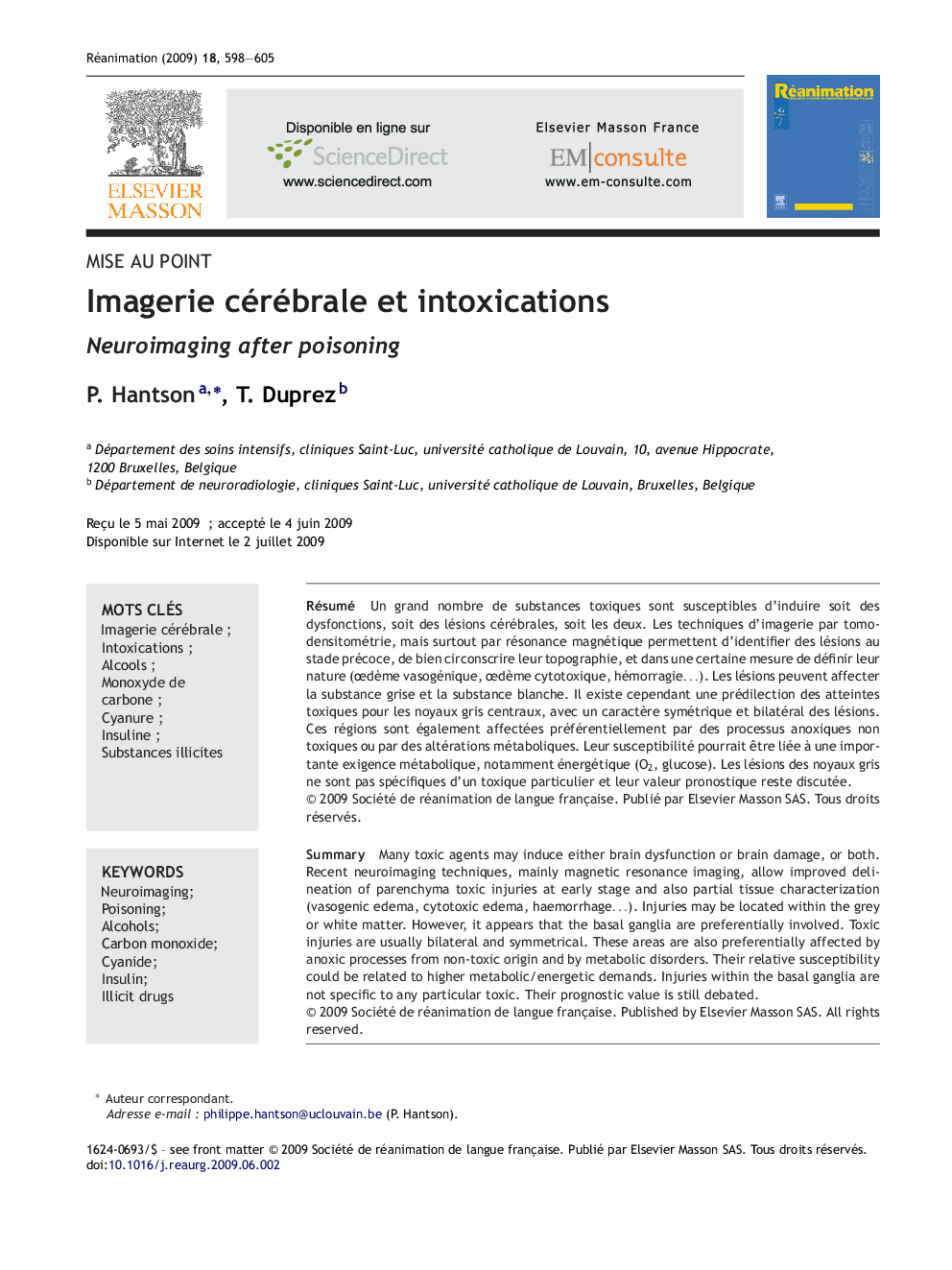| Article ID | Journal | Published Year | Pages | File Type |
|---|---|---|---|---|
| 2612922 | Réanimation | 2009 | 8 Pages |
Abstract
Many toxic agents may induce either brain dysfunction or brain damage, or both. Recent neuroimaging techniques, mainly magnetic resonance imaging, allow improved delineation of parenchyma toxic injuries at early stage and also partial tissue characterization (vasogenic edema, cytotoxic edema, haemorrhageâ¦). Injuries may be located within the grey or white matter. However, it appears that the basal ganglia are preferentially involved. Toxic injuries are usually bilateral and symmetrical. These areas are also preferentially affected by anoxic processes from non-toxic origin and by metabolic disorders. Their relative susceptibility could be related to higher metabolic/energetic demands. Injuries within the basal ganglia are not specific to any particular toxic. Their prognostic value is still debated.
Keywords
Related Topics
Health Sciences
Medicine and Dentistry
Emergency Medicine
Authors
P. Hantson, T. Duprez,
